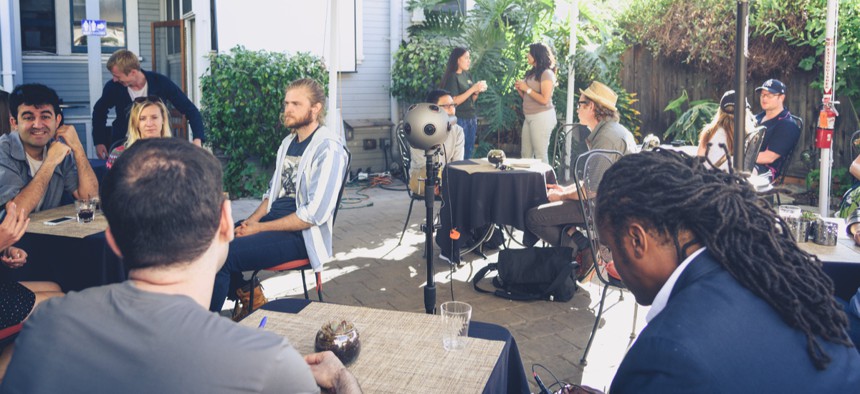Agencies Leaning on Citizens to Drive Innovation, Research

Leonel Calara/Shutterstock
The government is increasingly investing in prize competitions, crowdsourcing and other “citizen science” efforts to advance its research, according to the Office of Science and Technology Policy.
The government is increasingly turning to prize competitions and crowdsourcing to spur innovation and advance its research efforts, according to White House officials
Since 2014, dozens of federal agencies have looked to the American public to help generate new ideas, technologies and discoveries, and the Office of Science and Technology Policy expects their citizen-centric research efforts to ramp up in the years ahead.
Those projects have taken on a variety of shapes—everyday people can win money through prize competitions, gather and contribute data through crowdsourcing programs, and volunteer their time and labor as so-called “citizen scientists.”
Such efforts allow the government to attack complex problems from new angles and get more bang for its buck when it comes to research spending, OSTP officials said in a report published Friday. And as the global demand for STEM skills continues to grow, they said, those programs could be critical for empowering a new generation of scientists and technologists.
“One of the things this administration is keen on is everybody joining forces, coming together to solve the great challenges that we have facing us,” OSTP Director Kelvin Drogemeier said Friday at an open innovation event at the General Services Administration. “[Public research is] bringing science to the masses. You’re letting everyone participate and understand they have a role to play in discovery and innovation.”
In 2017 and 2018, the government funded 169 different prize competitions focused on a broad range of research topics, OSTP officials said in the report. During that period, roughly 30 agencies hosted some type of competition, they said, with NASA and the Health and Human Services Department sponsoring the most projects.
The prizes themselves varied widely, with some competitions offering no money at all and others rewarding their winners with millions of dollars, the report said. One program at HHS, which aimed to develop tools to identify antibiotic resistant microbes, offered participants a combined $20 million.
Such competitions have grown increasingly lucrative over the years. Agencies awarded a combined $32 million in 2014, but last year the total payout more than doubled to $69 million. Last year, the median purse per competition was about $75,000, up from $50,000 the year before.
“While prize competitions are not the right tool for every problem, they can serve as a mechanism for spurring and sourcing innovation if and when they are aligned with a broader strategy and used systematically within an agency,” officials wrote in the report.
The report included less specific data on the government’s “citizen science” efforts, but during the event Friday, agency officials highlighted a handful of their most successful crowdsourced projects. In recent years, they said everyday citizens contributed to numerous research efforts, including helping NASA discover new stars, comets and planets, and assisting the U.S. Geological survey in mapping earthquake intensity and coastal erosion.
“Through localized crowdsourcing and citizen science programs, thousands of Americans across the country and its territories directly engage with federal scientists to conduct research and improve the quality of life in their own neighborhoods and communities,” the report said. “[The programs] are proving particularly beneficial in applications that cannot be easily automated but instead require human intelligence and understanding to efficiently and correctly sort and analyze complex observations.”






